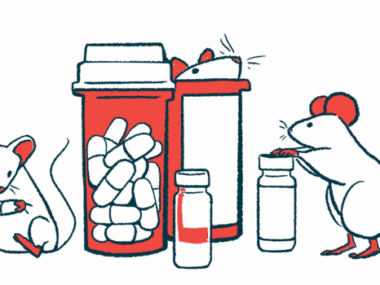How Do You Respond to Grief?
Written by |

I often think about grief, a feeling that everyone experiences at some point in their lives. Whether it involves the loss of a pet, parent, spouse, sibling, child, friend, or marriage, grief is unavoidable.
Because it is such a common emotion, one would think that most people could easily discuss or deal with it. But it is such a complex emotion that reactions to it are very individualized.
My daughter Abby has a terminal illness called Sanfilippo syndrome. I have previously written about experiencing grief related to her disease since she has lost so many skills. After Abby was diagnosed, her dad and I joined some online groups to obtain information and insight from other parents and to seek out support from those who have children with Sanfilippo. The groups are wonderful. They are so supportive, knowledgeable, and affirming. They are also full of people dealing with grief.
As I mentioned, reactions to grief are very individualized. Everyone responds differently. Grief has various stages that everyone moves through at their own pace. In addition to the stages, a person’s age, personality, phase of life, and life experiences also play a role, so it is no wonder that grief elicits so many different responses.
I have seen comments from other parents who have Sanfilippo children who have passed, and from those who still have children here. Most express their sadness and support for each other. However, some prefer to “keep it real” and face the fact that these children have a terminal disease and will die regardless of efforts to raise awareness or funds for a cure. This latter response sounds harsh, but that parent’s feelings are still valid.
My husband and I created Abby’s Alliance to help us cope with our grief and feel productive as we helplessly watch Abby decline. We are realistic in knowing that Abby is 25 years old and will never be accepted to a clinical trial because of her age and how much neurodegeneration has already occurred. Sanfilippo syndrome will take Abby’s life one day, but if we can do anything to help find a cure or raise awareness for this disease, our efforts are not in vain.
Abby’s Alliance is a group composed of family and friends who support our goals of increasing awareness of Sanfilippo and fundraising to help find a cure. We try to host annual events (except when a pandemic occurs) and gather as many people together as possible. For us, it is something we can physically do to help us grieve Abby’s loss of abilities, as we prepare to grieve her loss of life.
I feel like I am in constant rehearsal for Abby’s last day or moments of her earthly life. I sometimes try to pretend that she is not here anymore, like a “practice makes perfect” mentality, but it is too difficult. I believe that after Abby passes, her dad, sister, and I, and all our loved ones will hopefully join her in heaven one day, and she will be whole and perfect. My faith is likely what I will lean on most when faced with the grief of Abby’s passing.
***
Note: Sanfilippo News is strictly a news and information website about the syndrome. It does not provide medical advice, diagnosis, or treatment. This content is not intended to be a substitute for professional medical advice, diagnosis, or treatment. Always seek the advice of your physician or other qualified health provider with any questions you may have regarding a medical condition. Never disregard professional medical advice or delay in seeking it because of something you have read on this website. The opinions expressed in this column are not those of Sanfilippo News or its parent company, Bionews, and are intended to spark discussion about issues pertaining to Sanfilippo syndrome.





Leave a comment
Fill in the required fields to post. Your email address will not be published.